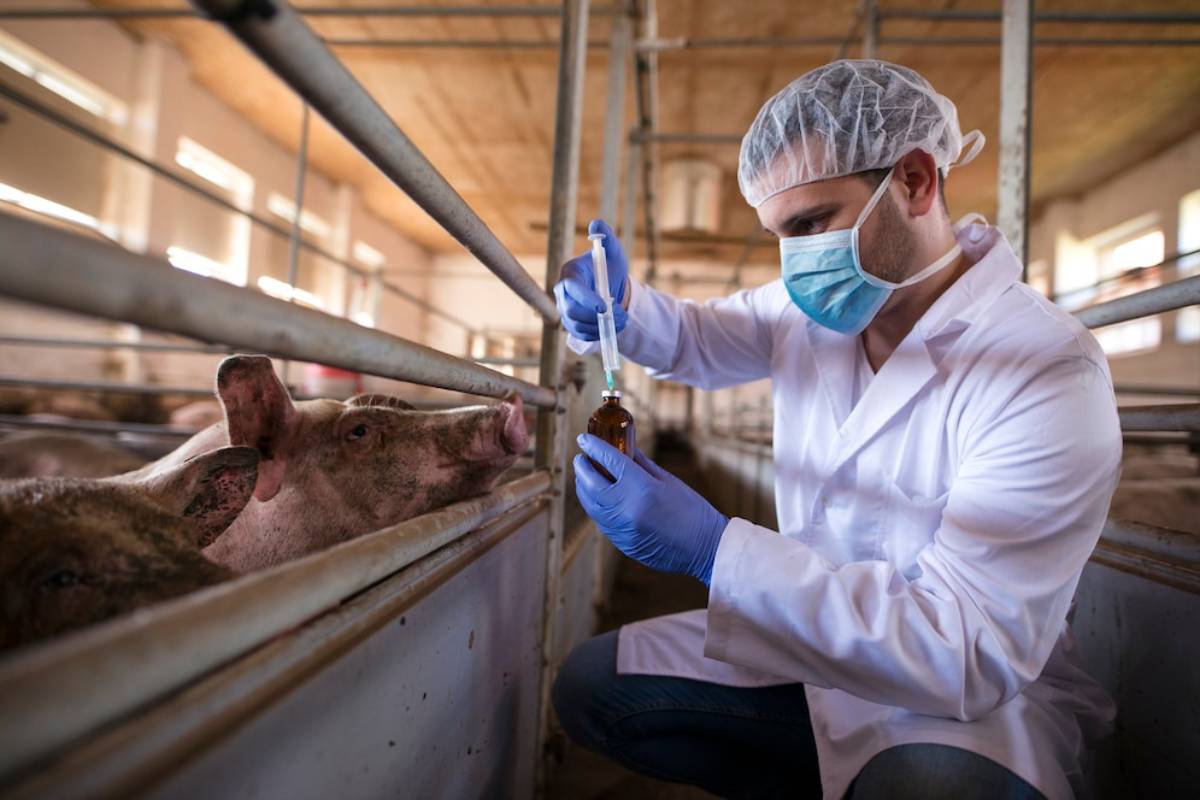
How to Start a Career in Biotechnology: A Comprehensive Guide
Biotechnology combines biology and technology. It leads to amazing solutions in healthcare, agriculture, and environmental management. A career in biotechnology is rewarding. It allows you to solve complex problems and help society advance. This guide shows you how to start a career in biotechnology. It covers the biotech industry, different job options, and practical steps for your journey.
Understanding the Core of Biotechnology Careers

The biotech industry is fast-changing and focused on research and development. It uses biological systems to tackle real-world problems. Biotechnology has many career paths. It includes areas like drug development and genetic engineering. Biotechnology is all about how science and technology work together. This section covers the basics of biotechnology careers. It offers a solid start for those looking to enter the field.
The Role of Biotechnology in Modern Society
Biotechnology’s influence is pervasive, impacting areas such as medicine, agriculture, and environmental conservation. Biotechnology in medicine has created life-saving drugs and therapies. This includes vaccines and personalised medicine. In farming, it has led to genetically modified organisms (GMOs). These GMOs boost crop yields and help resist pests. Environmental biotechnology focuses on using biological systems to address pollution and waste management. These applications show how important the sector is. They also reveal the many chances it offers for career growth.
Key Areas of Biotechnology
- Medical Biotechnology: Focuses on developing pharmaceuticals, diagnostics, and therapies.
- Agricultural Biotechnology: Involves genetic modification and bioprocessing for improved crops.
- Industrial Biotechnology: Applies biological systems for industrial processes, including biofuels.
- Environmental Biotechnology: Uses biological processes for environmental restoration and sustainability.
Quick Guide / Checklist for Starting a Biotechnology Career
Embarking on a career in biotechnology requires careful planning and a strategic approach. Below is a quick reference checklist to guide aspiring biotech professionals:
- Educational Foundation: Obtain a relevant degree in biotechnology, biology, or a related field.
- Industry Research: Stay informed about the latest trends and advancements in the biotech industry.
- Skill Development: Acquire essential skills, such as laboratory techniques, data analysis, and bioinformatics.
- Networking: Connect with industry professionals through conferences, seminars, and online platforms.
- Internships and Experience: Gain practical experience through internships and research projects.
- Certifications and Specialisations: Think about getting certified or specialising in specific areas of biotechnology.
- Job Search Strategy: Focus your job search on biotech companies and research institutions.
Step-by-Step Guide: How to Practise a Career in Biotechnology
Beginning a career in biotechnology requires a few important steps. Each step helps build a strong foundation and moves your career forward. This step-by-step guide offers actionable advice for aspiring biotech professionals:
Step 1: Obtain the Right Education
To start a career in biotechnology, you need the right education. Most positions require at least a bachelor’s degree in biotechnology, biology, or a related discipline. Advanced roles may necessitate a master’s degree or PhD, particularly in research and development.
Step 2: Gain Practical Experience
Hands-on experience is invaluable in the biotech industry. Look for internships, co-op programs, or research assistant roles. These can help you build skills and boost your resume. These opportunities provide insight into the industry’s workings and help establish professional connections.
Step 3: Develop Essential Skills
Biotechnology professionals must possess a diverse skill set, including technical and soft skills. Key technical skills include laboratory techniques, data analysis, and bioinformatics. Soft skills like communication, problem-solving, and teamwork matter just as much for career success.
Step 4: Stay Informed and Continue Learning
The biotech industry is continually evolving, with new discoveries and technologies emerging regularly. Stay informed by reading scientific journals, attending conferences, and participating in online courses. Continuous learning is crucial to remain competitive and advance in your career.
Step 5: Build a Professional Network
Networking is a powerful tool for career development. Join professional groups, go to industry events, and connect with peers on LinkedIn. Building a robust professional network can lead to job opportunities, collaborations, and mentorship.
Step 6: Explore Job Opportunities
When ready to enter the job market, explore various opportunities within the biotech industry. Consider roles in research and development, quality assurance, regulatory affairs, and sales. Tailor your job search strategy to align with your interests and career goals.
Pro Tip: Stay curious and flexible. The biotech industry changes all the time. Embracing new tech can keep you ahead.
Things to Remember
As you embark on your biotechnology career, consider the following expert tips and important notes:
- Stay Curious: Cultivate a mindset of curiosity and openness to new ideas. Innovation often stems from exploring uncharted territories and challenging conventional thinking.
- Embrace Teamwork Across Fields: Biotechnology often overlaps with areas like engineering and computer science. Embrace opportunities for interdisciplinary collaboration to broaden your perspective and skill set.
- Understand Regulatory Frameworks: Get to know the regulations for biotechnology. This is important if you want to work in pharmaceuticals or medical devices. Compliance with regulations is critical to ensuring safety and efficacy.
- Avoid Common Pitfalls: Watch out for common pitfalls. Don’t ignore soft skills. Also, remember that networking is important. Balancing technical expertise with interpersonal skills is essential for career success.
Important: Building a strong network with professionals is key. It can lead to valuable opportunities and collaborations that aren’t always advertised.
Best Practices & Additional Insights
To succeed in your biotechnology career, follow these best practices and insights:
- Focus on Quality and Precision: Biotechnology demands precision and attention to detail. Prioritise quality in your work to build a reputation for excellence.
- Use Technology: Use advanced tools like AI and machine learning to improve research and development.
- Find Mentors: Look for people who can guide you, support you, and share useful insights about the industry. A mentor can help you navigate challenges and accelerate your career growth.
FAQs
What educational background is required for a career in biotechnology?
A bachelor’s degree in biotechnology, biology, or a related field is typically required. Advanced positions may require a master’s degree or PhD.
What skills are essential for success in the biotech industry?
Essential skills include laboratory techniques, data analysis, bioinformatics, communication, problem-solving, and teamwork.
How can I gain practical experience in biotechnology?
Look for internships, co-op programs, or research assistant roles. These will give you hands-on experience and boost your resume.
What are some common career paths in biotechnology?
Some common career paths in the biotech industry include:
- Research and Development
- Quality Assurance
- Regulatory Affairs
- Sales
Secret Tip: Gain experience in areas like bioinformatics or engineering. This will boost your versatility and marketability in biotech.
Conclusion: Embarking on Your Biotechnology Career Journey

Beginning a career in biotechnology is rewarding. It lets you help make big advances in science and technology. To succeed in the biotech industry, follow the steps in this guide. They will help you build a solid foundation. Stay curious as you begin this journey. Embrace learning for life. Use your network to find new opportunities. Ready to take the next step? Explore educational programs. Seek internships. Connect with industry professionals. Start your biotechnology career today!
For more insights on biotech careers, check out our articles. Also, join our community of biotech fans! Your journey to a fulfilling career in biotechnology starts here!


